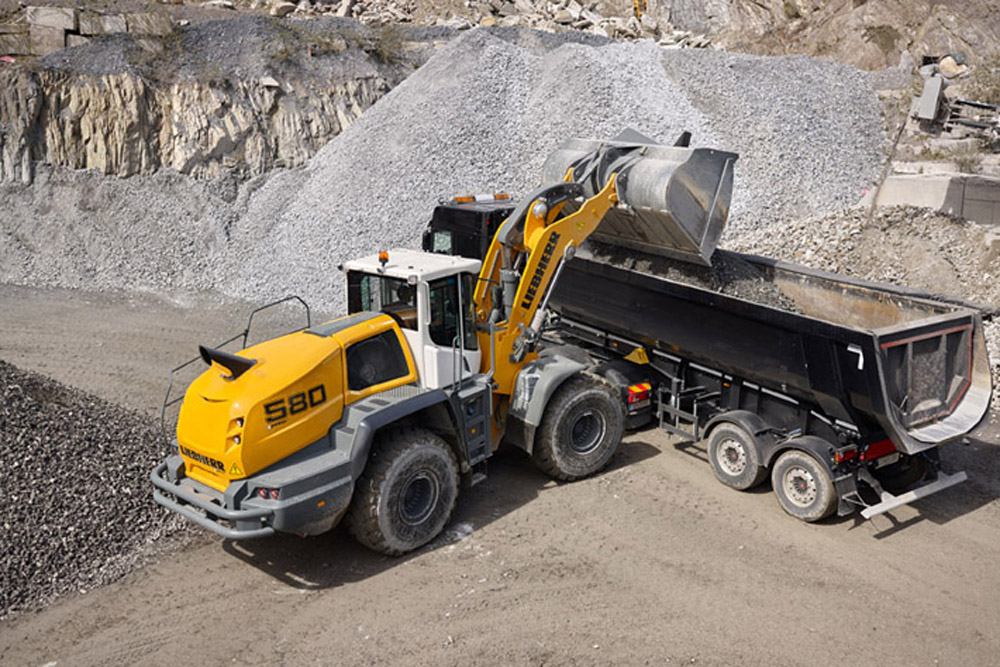
There’s a big job you want to bid, but to do it efficiently you’ll need a wheel loader. Or another wheel loader – it seems like you never have enough. Perhaps you even won the bid, and now you need to get the wheel loader to do the job. There’s just one question: is it better to buy or rent one?
This is a complicated question, but if you work it through, you can get the answer that works best for your business.
Wheel Loader for Sale or Rent: Start with the Math
There is a simple equation that should always be your starting point for making the decision to rent or buy a wheel loader: does it cost more to rent or buy?
To calculate this answer, take the hourly cost of renting a wheel loader and multiply it by the number of hours you expect to use the tool over its lifetime.
Estimating the number of hours you’ll use the tool is always challenging. For a versatile vehicle like a wheel loader, you’re likely to use it a lot. But maybe this is a compact wheel loader or a really large one that you will use less often.
Don’t forget to consider the cost of buying a used wheel loader. They might be much cheaper, but they might also not last as long, depending on how well they’ve been maintained.
Where Will You Store It?
When you buy a recip saw, you can just put it on the shelf or hang it on pegboard if you’re not using it. But a wheel loader – even a compact wheel loader – takes significant storage space. Maybe you’ve got a spot in your yard where it’d just fit or know a farmer who’ll let you park it in a fallow field. But if you don’t have a place to store it and would have to pay for parking when it’s not in use, factor that cost in.
How Will You Transport It?
Yeah, a wheel loader is faster than most of the equipment you use on a job, and sometimes you’ll drive it to the site, but if the loader is too large or the job is too far (or you don’t trust your drivers on the roads), you’ll need to have a transportation solution. If you’re renting, the rental company might provide a rental solution to make it easier.
Can You Bill the Wheel Loader?
One way to make your wheel loader cheaper is to bill some or all of the cost to the job. While you might be able to bill all the rental cost, even billing part of the purchase cost to the job might make buying cheaper.
If you’ve already won the job, make sure you review the terms of the contract and bid before trying to bill equipment to it. If you’re thinking about adding the cost to your upcoming bid, be aware that adding the cost of the wheel loader might make your bid less competitive. (However, if it’s the difference between having the job be profitable and making it a loss for you, it’s better to be less competitive.)
How Much Can You Deduct?
The cost of tools you get for a job can be deducted on your taxes whether you rent or buy. If you’ve done this before, you might have a sense of how much difference this makes, but if you’re not sure, talk to your accountant.
Will It Help You Get More Work?
Buying a wheel loader might be a better investment if it lets you bid and win more jobs. Maybe having another wheel loader is what’s been holding you back from running two teams simultaneously. Just make sure you have someone you can trust to promote to site manager before you invest too much into this strategy.
Can You Get Extra Value from It?
Some tools just sit in the yard when you’re not using it, but a wheel loader is a versatile, in-demand machine. You might be able to get extra value by renting it out when you don’t need it.
How Much Will You Pay in Maintenance?
When you rent a tool, the rental company takes care of all the wheel loader maintenance, but when you buy it all the costs are on you. Estimate how much this is likely to be, then factor that into the relative cost.
A Quote Can Help You Make the Decision
Before you can make your final decision, you need to know how much buying and renting a wheel loader will cost. Power Screening can supply you with a quote to help you make a decision on your wheel loader.
Please contact Power Screening today for a free quote and find out what we have available in Colorado, Utah, and New Mexico.
